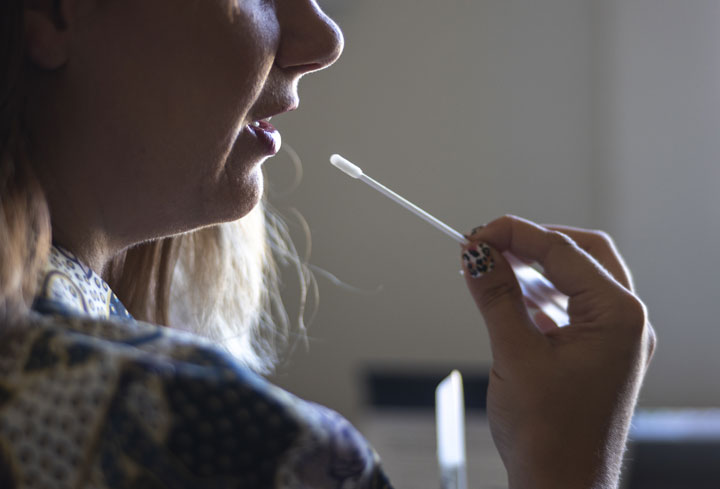Spit in a tube, and many companies will tell you all about your ancestors, people you’re related to, and if you ask, information about what diseases you might be at risk of developing someday.

That’s the promise made by manufacturers of direct-to-consumer genetic tests: not only do they give you information on where your ancestors may have come from, but they can tell you about your genetic risk for certain diseases, or if you’re a carrier.
But what do you do if your report says you have the genetic variant for a disease? Don’t panic, say the experts.
Genetic risk
Timothy Caulfield, a Canada Research Chair in Health Law and Policy at the University of Alberta says he’s “skeptical” of how useful consumer genetic tests are.
Partly, this has to do with how genes affect disease. Some, like cystic fibrosis, are “monogenic” – meaning that if you have the gene, you either have the disease or are a carrier, depending on whether the mutation is recessive or dominant.
Then there are diseases that have a genetic component and sometimes run in families, like hypertension, but can’t be attributed to a single gene, or even entirely to genetics, as factors like diet and environment may matter too. If you have the gene, you might get the disease — or not. And if you don’t have the gene, you might still get the disease — or not.
“The increase in risk is generally marginal, especially when you think of your overall risks in life,” said Caulfield.
In some cases, the tests might also be inappropriate for your background. A good example, according to Sohnee Ahmed, president of the Canadian Association of Genetic Counsellors, is the test for the BRCA-1 and BRCA-2 genetic variants, which can help to predict the risk of developing breast cancer.
The test run by the popular service 23andMe for example only tests for common variants that are present in people of Ashkenazi Jewish descent.

Get weekly health news
“If you’re not Ashkenazi Jewish and it comes back negative, it’s not to say that you may not carry something or there may not be something in your family. Having this negative result may not give you a full picture of what’s going on,” said Ahmed.
There are also some questions about the tests’ accuracy. A small study published in the journal Genetics in Medicine in March 2018 found that 40 per cent of genetic variants reported in direct-to-consumer genetic tests were false positives — though the study was conducted by a medical genetics testing firm.
Dr. Raymond Kim, a medical geneticist at the University Health Network in Toronto, said he’s not sure how accurate these tests are.
“I don’t know the answer to that. And because I don’t know, whenever a patient comes in with their report, I will confirm it through a separate objective route.”
Global News contacted 23andMe for comment on this story and did not receive a response by deadline. A disclaimer on their website notes that a person’s ethnicity may affect the relevance of the health report, and that “each genetic health risk report describes if a person has variants associated with a higher risk of developing a disease, but does not describe a person’s overall risk of developing the disease.”
It also states that the report is not intended to diagnose any disease and doesn’t replace visits to a healthcare professional.
Kim isn’t sure whether most consumers read or understand all that information and what precisely the test does and doesn’t tell you: “In the direct-to-consumer, without having somebody being able to navigate all those intricacies around the test, will be difficult for a lay consumer to fully interpret.”
WATCH: Dr. Samir Gupta talks to Global News about some of the worries associated with genetic testing kits.
What to do with your results
So what should you do if you’re worried about your test results? Get a second opinion.
“There aren’t going to be that many individuals that get an increased risk that is of such a magnitude that they need to follow it up,” said Caulfield. “But if there is something that is concerning, and it is worrisome to them, they should talk to a health professional about these things and get a sense of how to interpret it.”
“In order to make any sort of medical recommendations, we would want to confirm anything that is found in a direct-to-consumer report in a medical-grade laboratory setting,” Kim said.
He suggests raising your concerns with your primary care physician and seeing whether a referral to a genetics specialist is appropriate.
Caulfield worries that as genetic tests become more popular, it might create a burden on the healthcare system, though neither Kim nor Ahmed have seen this yet in their practices.
“I think that having this kind of information can be really empowering for patients so that they can advocate for themselves, they can go get test results for themselves,” said Ahmed.
It may result in increased access and awareness for consumers, she thinks. But it’s not a replacement for clinical testing.


Comments
Want to discuss? Please read our Commenting Policy first.